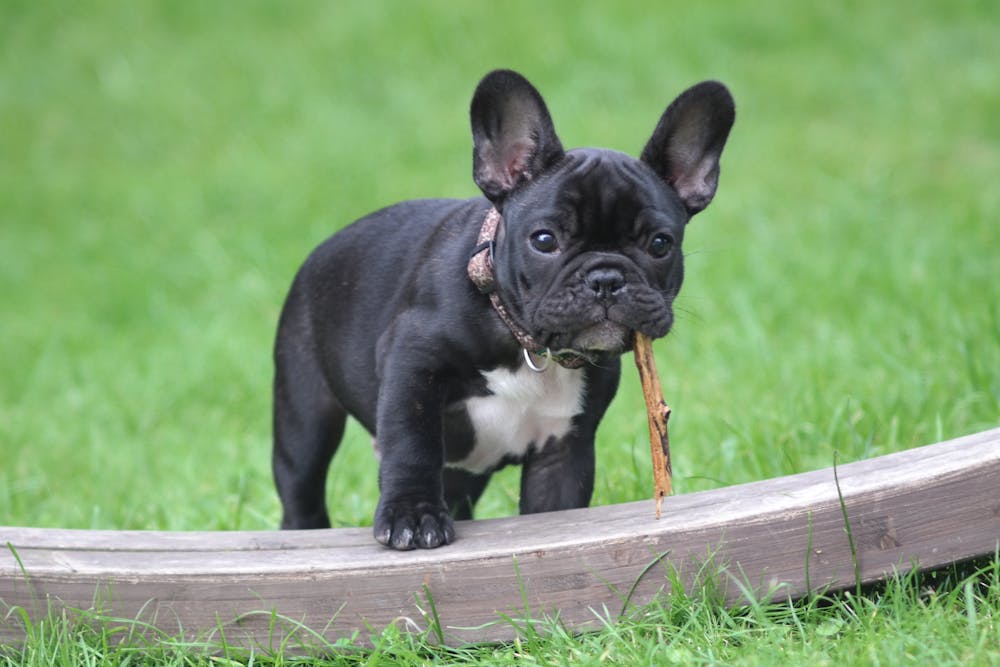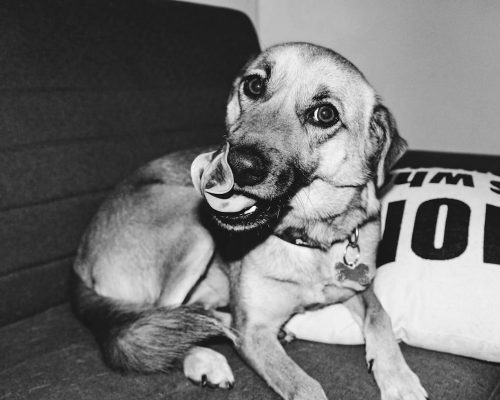French Bulldogs, often referred to as “Frenchies,” are one of the most beloved dog breeds in the world today. With their compact size, distinctive bat-like ears, and playful demeanor, they’ve captured the hearts of pet owners everywhere.
But owning a French Bulldog involves understanding their history, care needs, and unique characteristics. Whether you’re considering adding a Frenchie to your family or you’re a proud owner looking to know more, this guide covers every detail about the breed.
Table of Contents
ToggleThe Origins of the French Bulldog
The history of the French Bulldog is as fascinating as the breed itself. Originally, these dogs were descendants of English Bulldogs, bred in 19th-century England for the cruel sport of bull-baiting.
After the practice was banned, Bulldogs became popular as companions for working-class individuals, particularly lace makers in Nottingham.
During the Industrial Revolution, many lace workers moved to France, bringing their smaller Bulldogs with them. These dogs quickly gained popularity in rural areas of France.
Over time, selective breeding produced a smaller, stockier dog with the iconic upright ears that distinguish French Bulldogs today. By the late 1800s, the breed had become a symbol of Parisian culture, adored by artists, aristocrats, and the working class alike.
The French Bulldog’s appearance evolved to meet the preferences of French breeders. They favored a more compact size, a flatter nose, and the signature “bat ears,” which are now a hallmark of the breed.
Furthermore, these physical traits were refined to make them ideal companions, emphasizing their friendly and approachable nature.
Physical Characteristics
French Bulldogs are small yet muscular, typically weighing between 16-28 pounds and standing around 11-12 inches tall.
Their size makes them perfect for those living in apartments or homes with limited space. Despite their small stature, their bodies are robust and well-built, giving them an air of strength and sturdiness.
Iconic Bat Ears
Perhaps the most recognizable feature of a French Bulldog is their upright bat-like ears. Unlike other bulldog breeds, Frenchies have ears that stand tall and slightly rounded at the tips. This feature not only gives them a distinctive appearance but also contributes to their alert and curious demeanor.
Coat
The French Bulldog has a smooth, short coat that’s low-maintenance yet striking. They come in a variety of colors, including brindle, fawn, white, and pied.
Rare colors such as blue, chocolate, or merle may be trendy but are often associated with genetic health risks. It’s essential to choose reputable breeders who prioritize health over color rarity.
Temperament and Personality
French Bulldogs are known for their affectionate and playful temperament. They love being the center of attention and often exhibit clownish antics that bring joy to their families. Their friendly nature makes them excellent companions for singles, couples, and families alike.
While Frenchies are intelligent and eager to please, they can also be notoriously stubborn. This mix of intelligence and determination can make training a challenge, but it also highlights their unique personalities. They respond best to positive reinforcement techniques, such as treats, praise, and consistent routines.
Ideal Living Conditions
French Bulldogs thrive in smaller living spaces, making them ideal for city dwellers or those without large yards.
Their low energy levels mean they’re content with short walks and indoor playtime, although they still enjoy occasional adventures outdoors.
Due to their brachycephalic (flat-faced) anatomy, French Bulldogs are highly sensitive to extreme weather. They can overheat quickly in hot climates and may struggle to stay warm in cold weather. Always monitor their environment and provide climate control to ensure their comfort and health.
Health Concerns
French Bulldogs are prone to specific health problems due to their unique physical traits. Brachycephalic airway syndrome can lead to breathing difficulties, particularly in hot or humid conditions. Additionally, they may develop hip dysplasia, allergies, and intervertebral disc disease (IVDD).
The average lifespan of a French Bulldog is 10-12 years. To maximize their longevity, regular veterinary check-ups, a well-balanced diet, and moderate exercise are essential. Early detection of health issues can prevent complications, making routine care non-negotiable.
Grooming Needs
French Bulldogs have low grooming needs, thanks to their short coat. Weekly brushing is sufficient to remove loose hair and maintain their sleek appearance. Regular nail trimming and ear cleaning also play a vital role in their overall hygiene.
The adorable wrinkles on their face require special attention. Moisture and debris can accumulate in these folds, leading to irritation or infection if not cleaned regularly. A damp cloth and gentle cleanser can help keep these areas clean and healthy.
Training and Socialization
Socialization and training should begin as early as possible. Exposing your Frenchie to new environments, people, and other animals helps them develop confidence and good behavior. Puppy classes can be particularly helpful for first-time owners.
Frenchies have a strong-willed streak, so training requires patience and consistency. Avoid harsh correction methods, as they can lead to fear or behavioral issues. Instead, use positive reinforcement techniques to encourage desirable behavior.
Feeding and Nutrition
French Bulldogs require a balanced diet tailored to their size, age, and activity level. High-quality kibble or home-prepared meals can meet their nutritional needs. Consult your vet to determine the best feeding plan for your dog.
Some foods, like chocolate, grapes, and onions, are toxic to French Bulldogs and should be avoided at all costs. Additionally, overfeeding can lead to obesity, which exacerbates their health issues. Always monitor portion sizes carefully.
Activities and Exercise
French Bulldogs are not high-energy dogs, but they still need regular physical activity to stay healthy. Short walks, play sessions, and interactive toys are great ways to meet their exercise needs without overexerting them.
Keeping their minds engaged is equally important. Puzzle toys, obedience training, and scent games are excellent ways to challenge their intellect and prevent boredom-related behaviors like chewing or barking.
French Bulldogs in Pop Culture
French Bulldogs have become a favorite among celebrities, further boosting their popularity. Notable owners include Lady Gaga, David Beckham, and Dwayne “The Rock” Johnson. Their widespread appeal has turned them into status symbols and loyal companions alike.
The breed’s quirky expressions and comical antics make them a hit on social media platforms. Many Frenchies have their own Instagram accounts, garnering thousands of followers and bringing joy to dog lovers worldwide.
Conclusion
French Bulldogs are more than just adorable pets; they are loyal, loving, and full of personality. Their unique history, endearing traits, and specific care requirements make them a rewarding breed for dedicated owners.
Whether you’re drawn to their playful temperament or their iconic appearance, Frenchies offer companionship and charm that few breeds can match.
With proper care and attention, these small dogs leave a big impact on their families, proving that they are truly one-of-a-kind.






